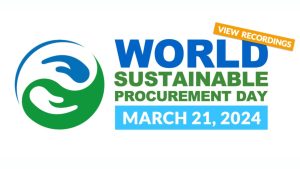Reading the various business travel magazines, a hot topic that seemingly hasn’t been resolved is how to alleviate the cost risk of unexpected credit card interest charges that are levied against a company for late payment.
And it’s not that corporations are avoiding paying their suppliers, rather, it’s accounts payable departments’ checks and balances and a duty to ensure that all the paperwork is in order before releasing payment (rightly so) that delays money changing hands.
However, the right technology is available to eliminate the risk of these hefty credit card interest charges, says Tracey Shaw of TravelluXion, in this month’s SmartProcurement.
It’s no secret that the traditional method of procuring travel usually requires a paper-based travel requisition or an email, or in the worst case, a phone call with no approval processes in place.
This is submitted to a line manager or budget owner for approval, the costs are approved and the travel management company (TMC) is given the authorization to incur costs against the travel lodge card on behalf of the client.
The TMC is usually required to produce the original signed travel requisition, along with any applicable supplier invoices to the corporation, prior to release of payment to the credit card company (which is termed matching).
The payment process requires the input of independent parties: the TMC, the supplier, the corporate client and the credit card company. Without a supporting technology framework to capture all relevant documents (travel requisitions, invoices, billbacks and expense claims) on one platform that links them to the original travel order number the parties will be acting on separate information.
When travel requisitions have gone missing, or have been altered, the process becomes muddled and onerous on the TMC – even more so when the penalties of credit card interest charges run into hundreds of thousands of Rands.
Service level agreements between a corporation and its TMC now come into play, and lengthy debates ensue around who is liable owing to non-payment.
Sometimes this process only comes to the fore months, sometimes a year later, which makes such negotiations unpleasant for all.
The challenge is alleviating these unnecessary charges and in the absence of a technology platform that allows all interested parties access, in an auditable method, to progress this payment cycle, penalities will continue to be incurred.
Ideally the travel requisition and ordering process should be hosted on a travel procurement application that has robust approval frameworks; budget information available at the time of approval; a date and time stamp for all transactions and approvals; and that can pool-together all the relevant documentation for accounts payable to access to facilitate payment.
This will empower organisations with a procurement process that is hosted on-site, is not paper-based, cannot be manipulated after approval without raising red flags, and that connects multiple invoices back to one order number in order to streamline the procurement process, simplify the payment mechanism and reduce the risk of credit card penalties, amongst other things.
Sound ideal? It would certainly be an improvement on a time-consuming, manual, paper-based process.
Contact Tracey Shaw on tracey.shaw@traveluxion.co.za for more information.


























